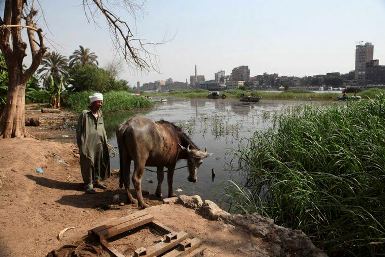Egypt attends Nile Basin meeting after 5-year absence
February 21, 2015 (KHARTOUM) – A meeting between Nile Basin Initiative (NBI) countries held in Khartoum on Saturday was for the first time attended by all members, Sudan’s minister for irrigation and electricity, Moatez Moussa, announced.

In press statements, Musa said that the NBI members agreed to prioritise the interests of their people and promote cooperation for the management and development of water resources for the benefit of the peoples of the Nile Basin countries.
Moussa stressed that only three articles were left to conclude the NBI legal framework that are currently considered by the member states.
These articles include the NBI decision making process whether by unanimity or majority, notification process on planned water resources development projects and bilateral accords of member states.
Egyptian water and irrigation minister Hussam Maghazi was quoted by Egyptian press this week as saying that his country will push for new dispute resolution mechanisms.
“Egypt will put forth a new vision for the situation with the aim of reaching a win-win solution,” Maghazi said on Thursday.
“This will be a good opportunity for Egypt to clarify bones of contention on the Nile Basin Framework Convention,” the minister said, adding that they will also propose amendments on certain items in the Entebbe agreement.
The minister underscored that Egypt will not sign the Entebbe Agreement in its present form.
The NBI is a partnership among the Nile riparian states that seeks to develop the river in a cooperative manner, share substantial socioeconomic benefits, and promote regional peace and security.
It began with a dialogue among the riparian states that resulted in a shared vision to “achieve sustainable socioeconomic development through the equitable utilisation of, and benefit from, the common Nile Basin water resources”.
The initiative was formally launched on 22 February 1999 by the water ministers of nine countries that share the river including Egypt, Sudan, Ethiopia, Uganda, Kenya, Tanzania, Burundi, Rwanda, the Democratic Republic of Congo (DRC), as well as Eritrea as an observer.
The Nile Basin covers an area of 3.2 million square kilometres and spans 11 nations, which are facing growing pressures including persistent poverty among its populations, climate change resulting in floods, prolonged droughts, low access to electricity, lack of food security and rising populations, placing increased demands on water flows.
(ST)
